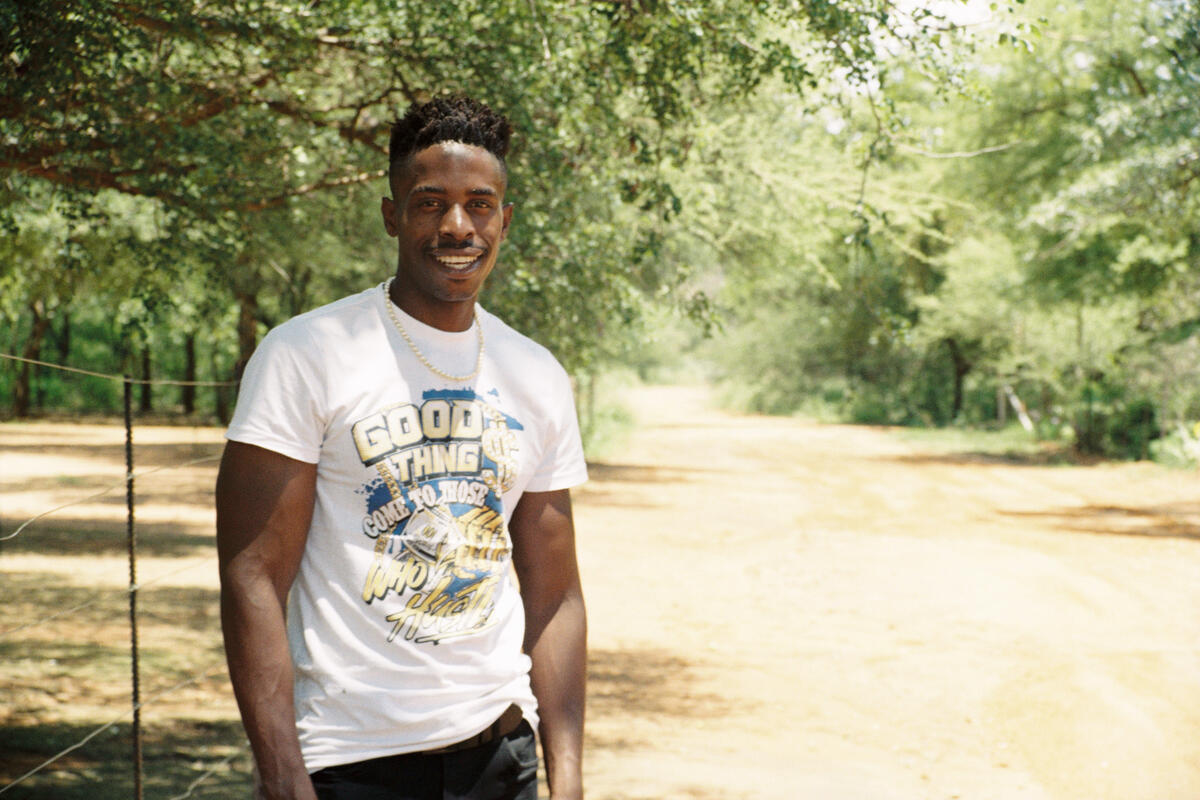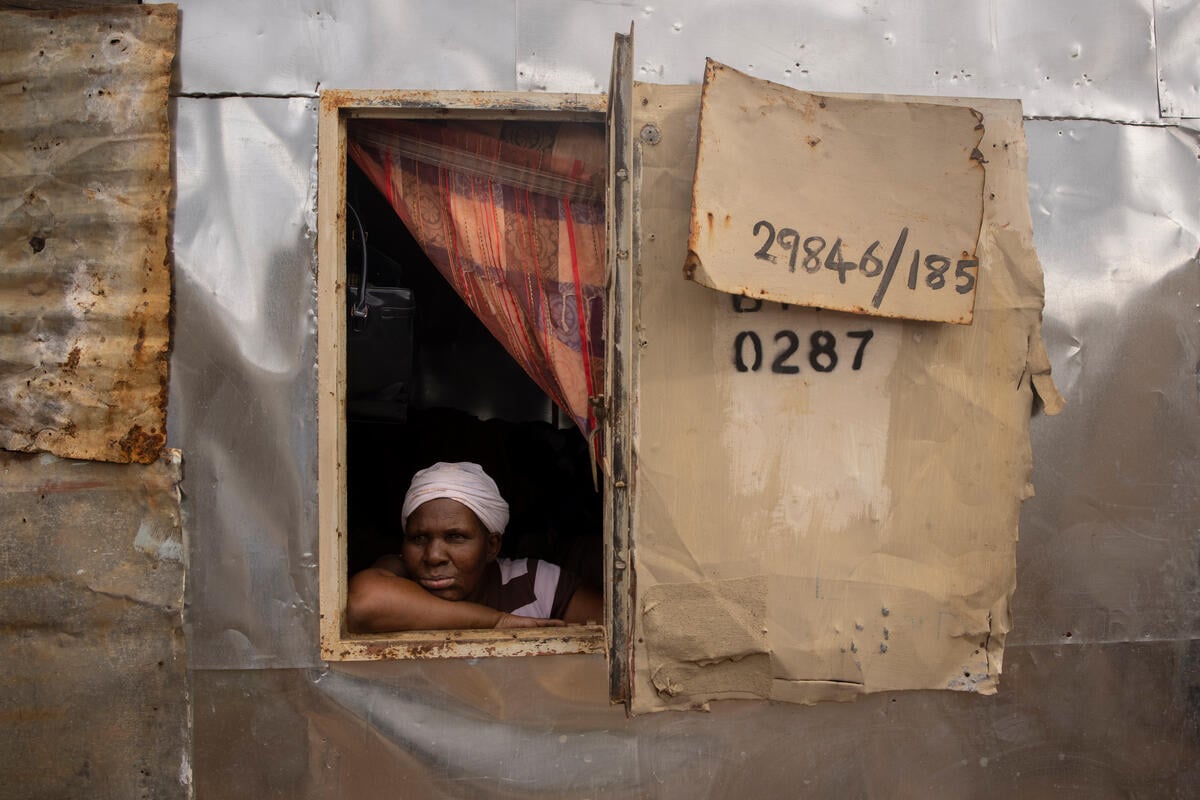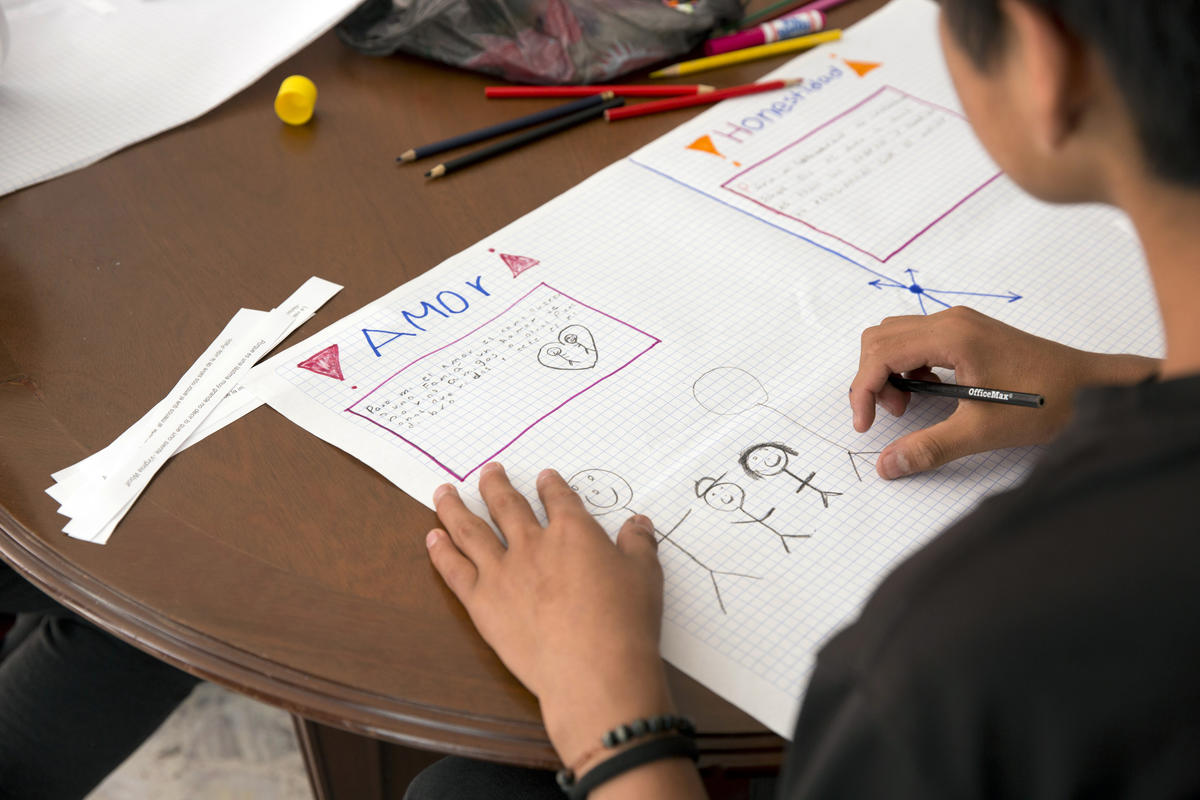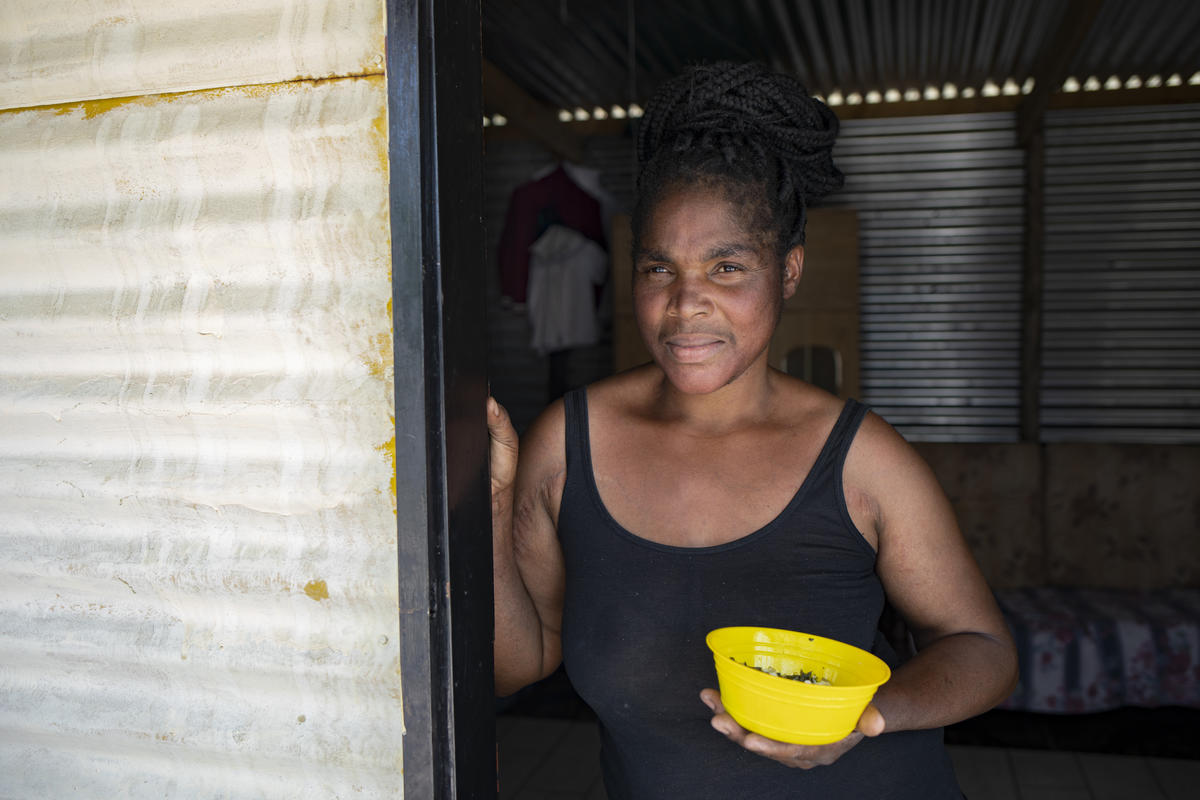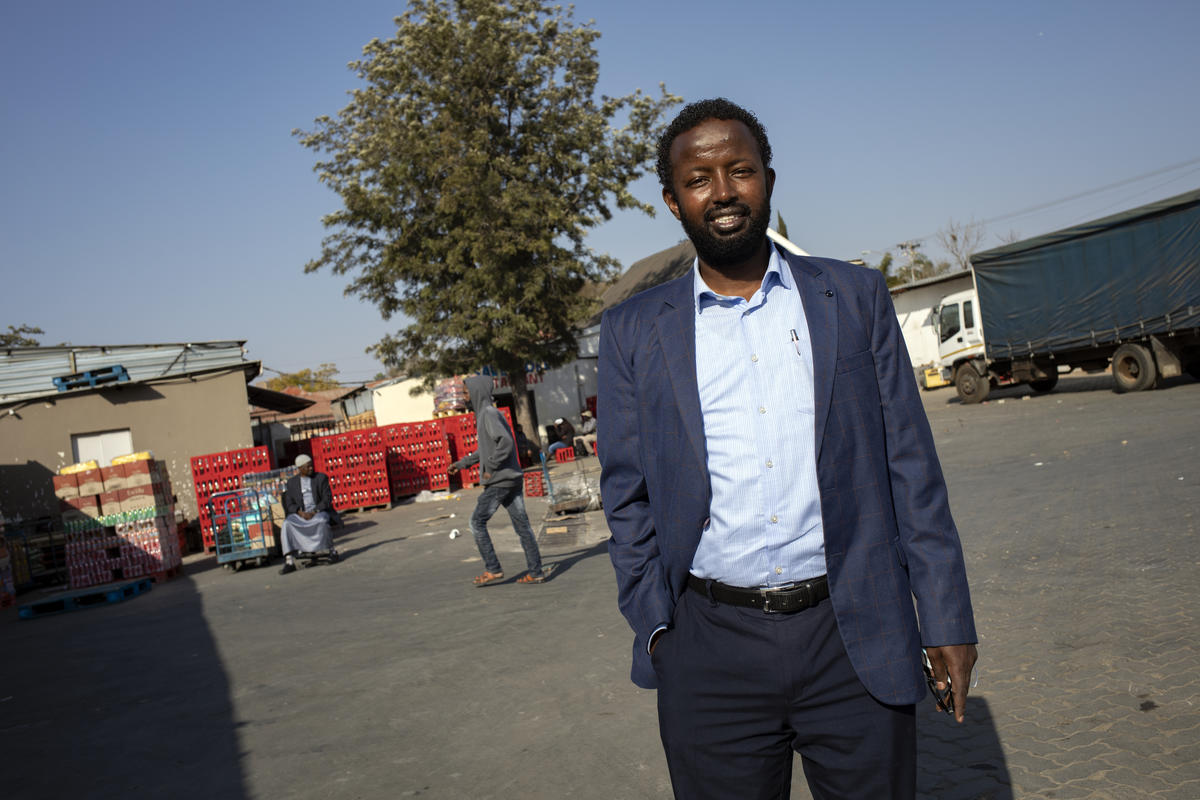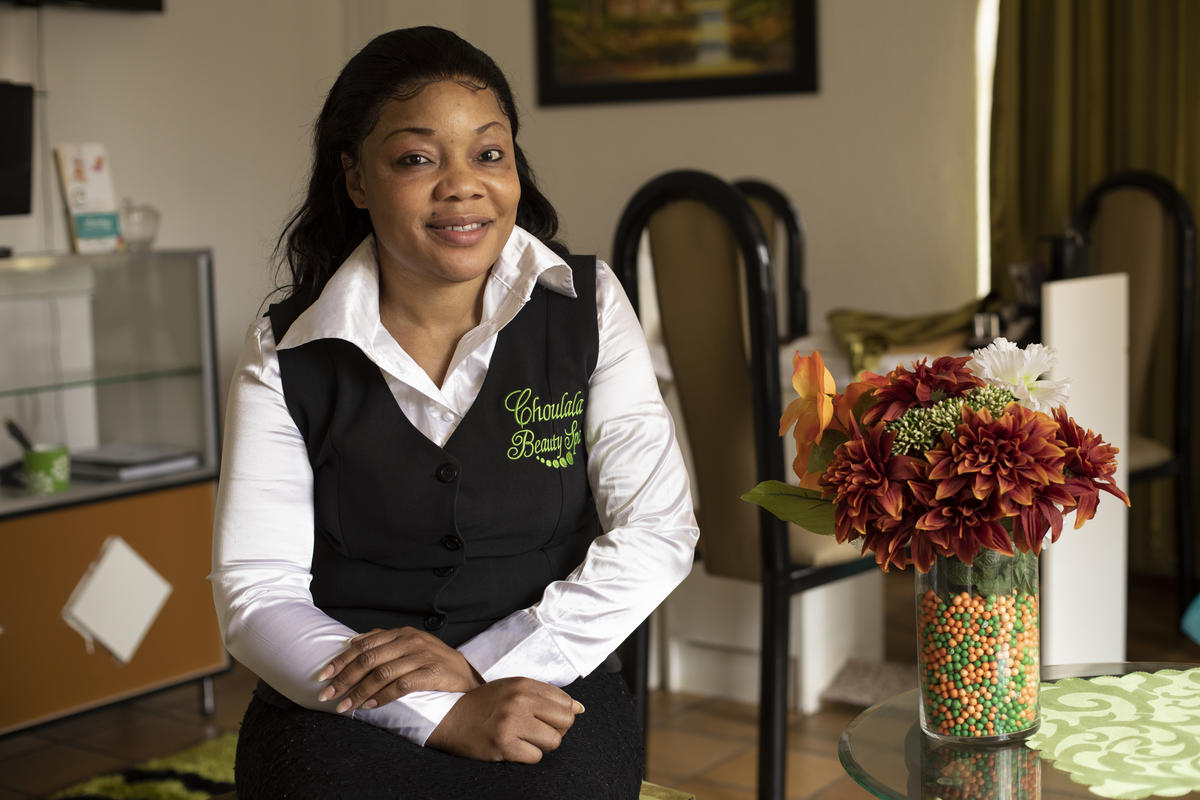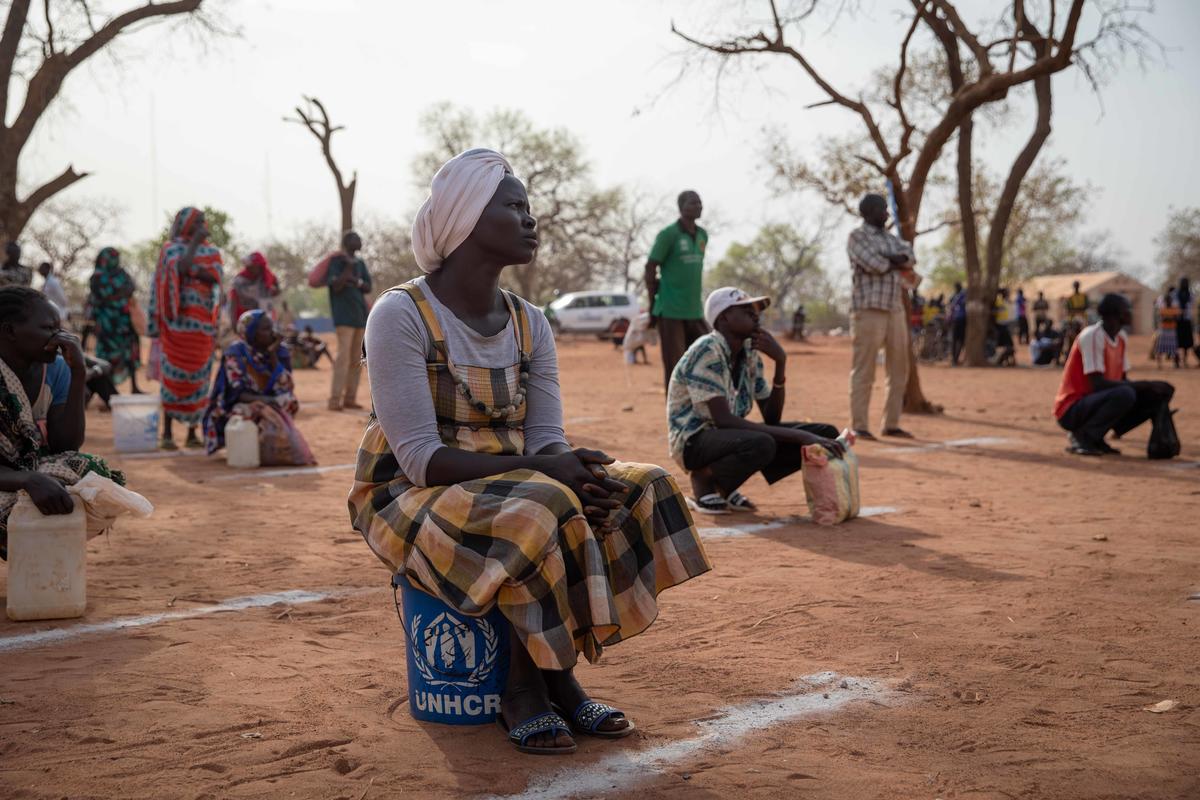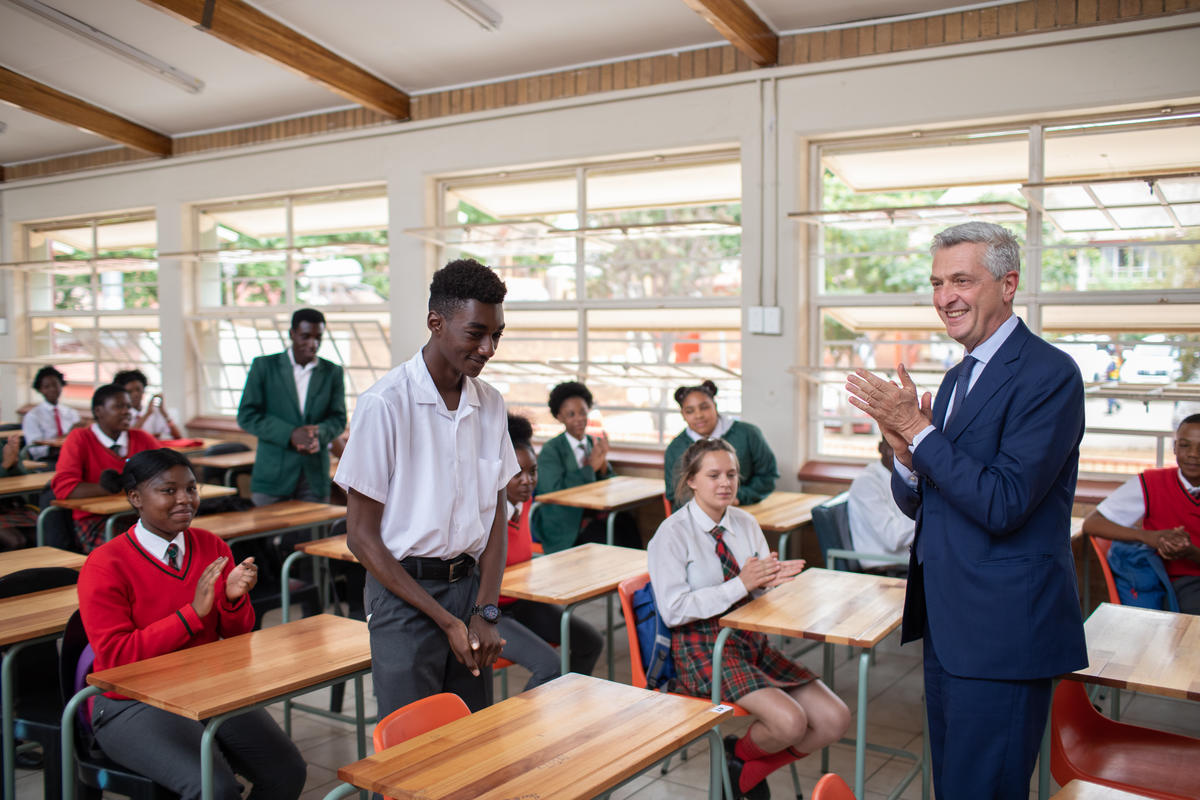South African government meets refugees, listens to their problems
South African government meets refugees, listens to their problems

PRETORIA, South Africa, June 29 (UNHCR) - No one could accuse the South African government of trying to avoid tough questions over its refugee policy. On the contrary, it brought young refugees and asylum seekers to a meeting here on Tuesday specifically to hear the problems they face.
"It is important that we come to listen like this, to grasp the concerns," said Malusi Gigaba, Deputy Minister of Home Affairs. Late last year, Home Affairs Minister Nosiviwe Mapisa-Nqakula had staged similar gatherings with older refugees and asylum seekers in Durban and Johannesburg.
Questions flowed from the hundreds of young people at the meeting, which was timed both to reflect last week's World Refugee Day and South Africa's honouring of youth on the 30th anniversary of the Soweto uprising against apartheid.
Many of their complaints centred on the lengthy delays in the asylum process and the lack of official refugee identification cards that the police and other institutions will recognise. Gigaba said both problems were being addressed, with work proceeding on more sophisticated ID cards and the launch last week of a concerted attack on the backlog of asylum applications.
"We are doing our best, at least to improve our efficiency in management of refugee and asylum seeker matters," Gigaba said. "We are trying to move as speedily as possible. We have been given the promise that that process is moving rather quickly."
The queue of pending asylum requests is about 100,000 long, but the government has hired extra staff and opened new facilities in a bid to clear it within a year. There are about 30,000 recognised refugees in South Africa.
Gigaba cautioned refugees to remember that South Africa, while the economic powerhouse of the African continent, is still not a rich country. Many of its citizens face the same problems as refugees, including poverty, unemployment, homelessness and crime. "We must do the best we can within our limited resources, and that is what we are doing," she said.
Ebrima Camara, the regional representative of UNHCR, attended the meeting and told the young men and women, boys and girls, that South Africa's treatment of refugees is far better than many countries in the world.
He noted that South Africa, which has rejected the concept followed by many countries of either keeping asylum seekers in detention or designated camps, has extended full protection to refugees through its constitution and specific legislation. "They are progressive, not just compared to legislation elsewhere in Africa, but I would say in the whole world," said Camara.
He said UNHCR did not know of a single case of South Africa returning a refugee to a country he or she had fled - a process known as refoulement that many countries have carried out despite it being banned by the UN's 1951 Refugee Convention.
Under South African laws, refugees have essentially the same rights as citizens, with the exception of the right to vote. They have full freedom of movement, employment, access to education and medical services - rights frequently refused refugees living in nearby African countries.
Camara and Gigaba conceded there were sometimes shortcomings in implementation in areas such as access to social services and the processing of asylum requests, but said the government had shown it was determined to address the problems. They urged refugees to strictly follow the law to help the government to counter widespread xenophobia.
"The backlog project is indeed a hopeful sign that the government of South Africa, certainly the Department of Home Affairs, is committed to honouring its responsibilities," said Camara.
UNHCR monitors the asylum process, but the determination of refugee status is carried out by South Africa. The UN body helped by training extra government staff last year in preparation for the backlog project and resumed training for staff of the Department of Home Affairs this week.
By Jack Redden in Pretoria, South Africa

